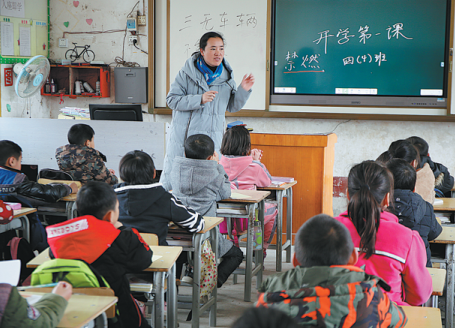Teacher dedicates life to rural students
By Zhao Yimeng | CHINA DAILY | Updated: 2021-03-23 08:52

New name
Though his students were afraid of leaving the village for the first time and cried when they were parted from him, Nong was proud that they had gone to better schools.
He named the village Luosongdi-"peanuts" in the Zhuang language, and the dominant crop-so the students could write down their family address without anyone making a connection with leprosy when they registered at new schools.
Nong was once dispatched to a school in another village.
"All my students saw me off on a rainy day. I couldn't figure out if it was rain or tears running down their faces," he recalled.
He returned to Luosongdi after just one semester, though, because he couldn't give up on the children and friendly villagers.
"The children in the village needed me more. Education can change a child's life for six years, and a good education can affect a family for six or 60 years and even change their destiny," he said.
Until last year, he was the only teacher in the village. Usually he had to take care of 25 students and moved among three classes.
In September, Luosongdi took advantage of a special rural recruitment program to employ a 22-year-old graduate to share the teaching duties with Nong.
Zhu Lidan, the graduate, is responsible for most subjects, including English, music and art. Nong teaches science and math and oversees school administration. He earns 6,000 yuan ($920) a month.
The school only has six students at present because most have followed their parents who have left the village to find work. Those children now attend schools in big cities.
Huang Zuofu, an official with the county education bureau, said that as the generation of leprosy patients has passed away, the village has become more open to the outside world.
"All school-age children were enrolled in the primary school after Nong came," Huang said.
"Now he teaches children during the day and helps to eradicate adult illiteracy at night school, in addition to providing basic information about agriculture and law."
Nong is happy that the children who have moved to big cities can enjoy better teachers and more facilities.
"But as long as one child in the village needs me, I will keep teaching," he said.
"If someday there are no students in the village, I will consider teaching in a poorer region."
Li Yingqing contributed to this story.
























